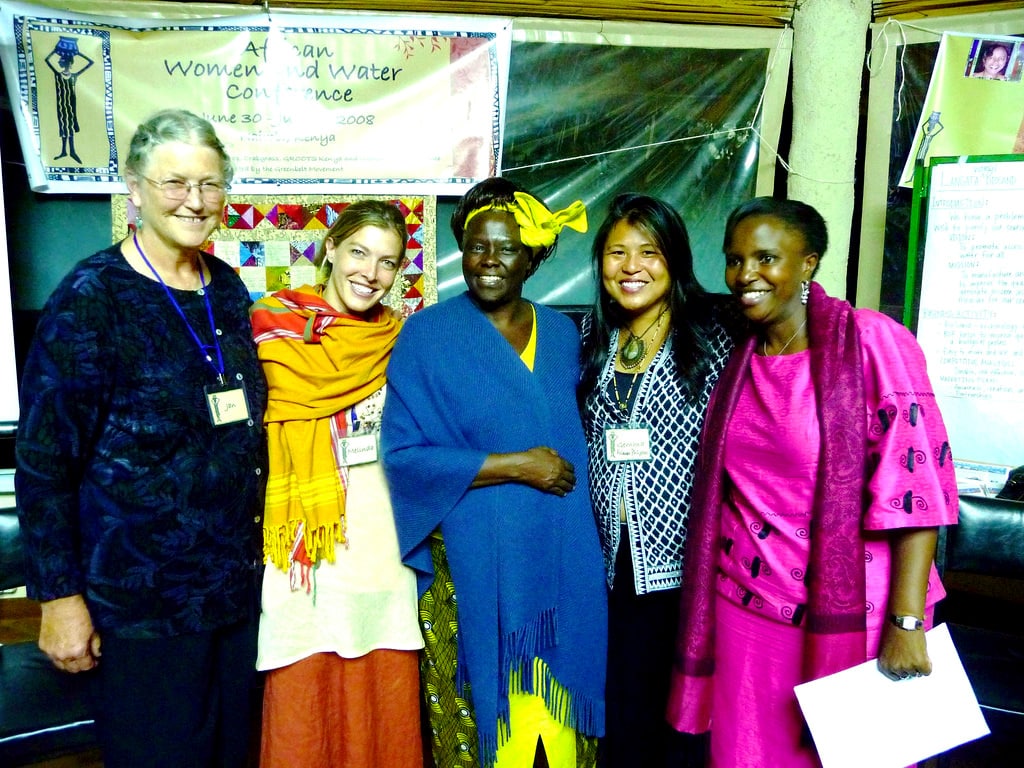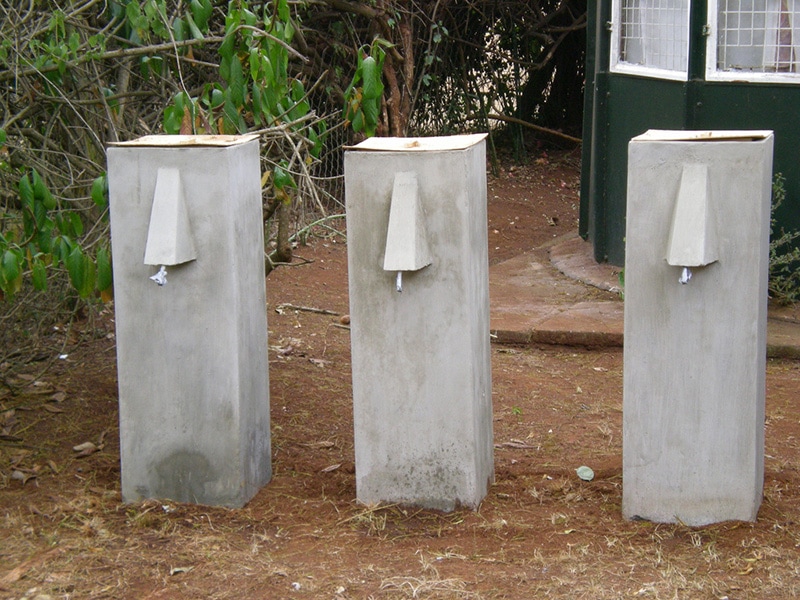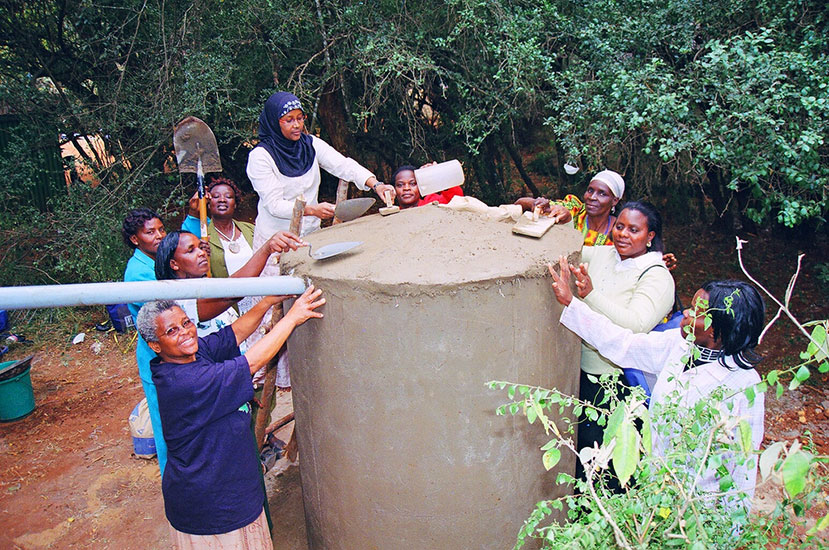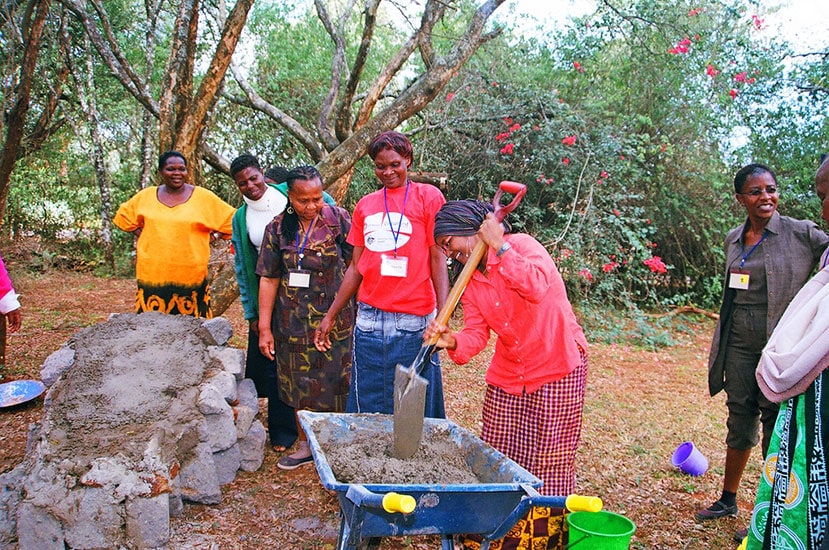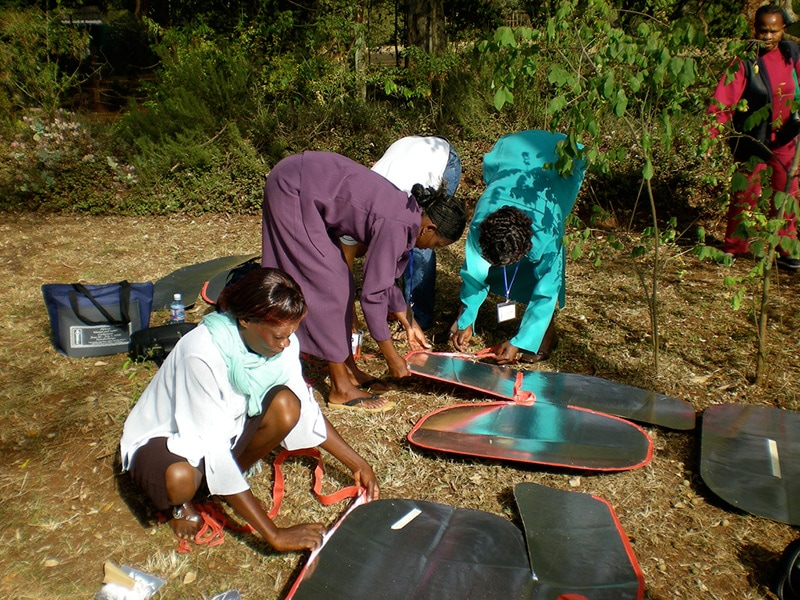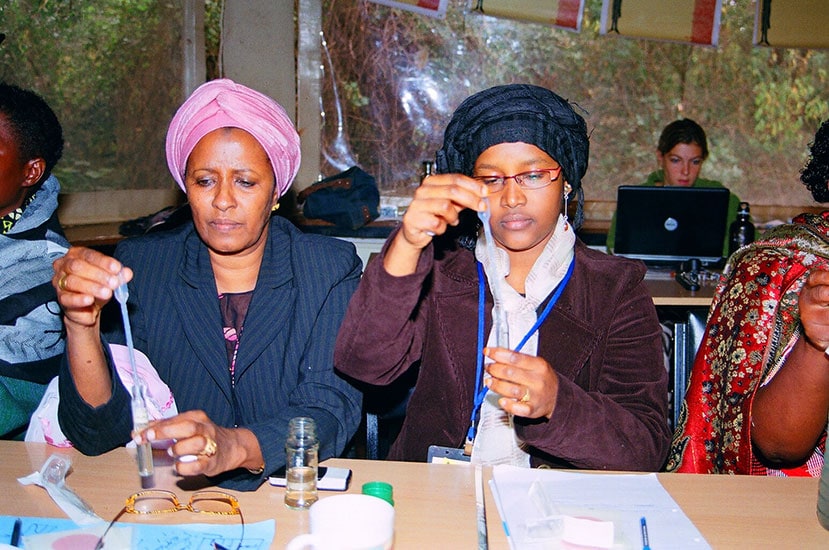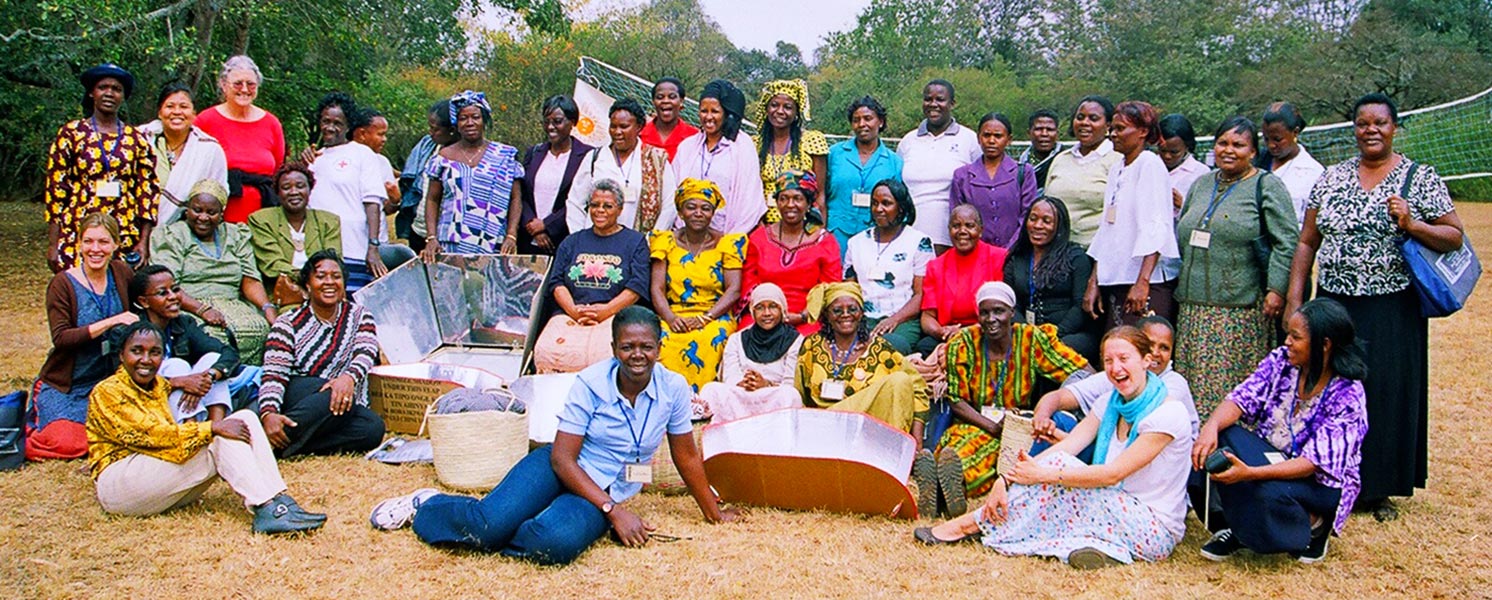Endorsed and hosted by the late Nobel Peace Prize Laureate Dr. Wangari Maathai, and coordinated by GROOTS Kenya, the 2008 Women and Water Training provided tools and skills to thirty African women leaders to launch water service projects in their communities. Participants returned to their communities with a new “toolkit” of skills, technologies, and expertise, a network of women to support her efforts going forward, and seed grants to start her own water service project.
The Global Women’s Water Initiative was co-founded by three organizations: A Single Drop, Crabgrass, and WEA. We came together to address the lack of women’s leadership in the WASH sector, despite women’s central role as water stewards. We hosted our first training in 2008 at Green Belt Movement with the support of Nobel Peace Laureate, Dr. Wangari Maathai. GWWI is now its own organization.
Meet the Women Leaders
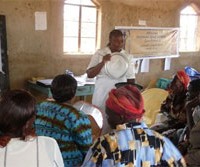
Jennifer and Priscah, Training Participants
In Kitui, Kenya, 2008 participants Jennifer Mutinda and Priscah Mutia installed rainwater harvesting systems and water storage tanks in a school and health dispensary just in time for the rainy season. Their nearby school was able to provide daily access to more than 400 children and even plant mango trees on the school grounds. The tank at the health dispensary provides the local water committee with funds to purchase food for youth orphaned by HIV and AIDS.
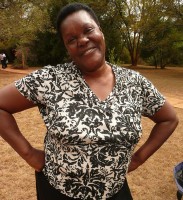
In Uganda, the community organization UCOBAC, represented by training participants Solome Mukisa and Matilda Nabukonde, taught simple Rainwater Harvesting techniques to ten different compounds in their community. The communities worked together to build rainwater harvesting systems using a gutter from a hollowed out trunk of a banana tree. Each home now has a 200 liter storage tank for their household water use, saving women in the community long and arduous walks to fetch water. Solome and Matilda plan to expand their reach to schools, health facilities and nearby communities.

AT A GLANCE
Just one flush of a toilet in the West uses more water than most Africans have to perform an entire day’s washing, cleaning, cooking, and drinking.*
An analysis of 25 countries in Sub-Saharan Africa revealed that 71% of the water collectors in the region are women and girls, and in just one day women collectively spend an estimated 16 million hours fetching water (men, 6 million in comparison).*
The water and sanitation crisis claims more lives through disease than any war claims through guns.*

"Here in Africa we have plenty of sun. And it is free. Let’s take the women out of their smoky kitchens! Let’s save them money so they don’t have to buy fuel to cook or find wood! Let’s help them use the sun to cook and clean their water!"
— THE RALLYING CALL OF MAMA SOLAR!

THE TRAINING
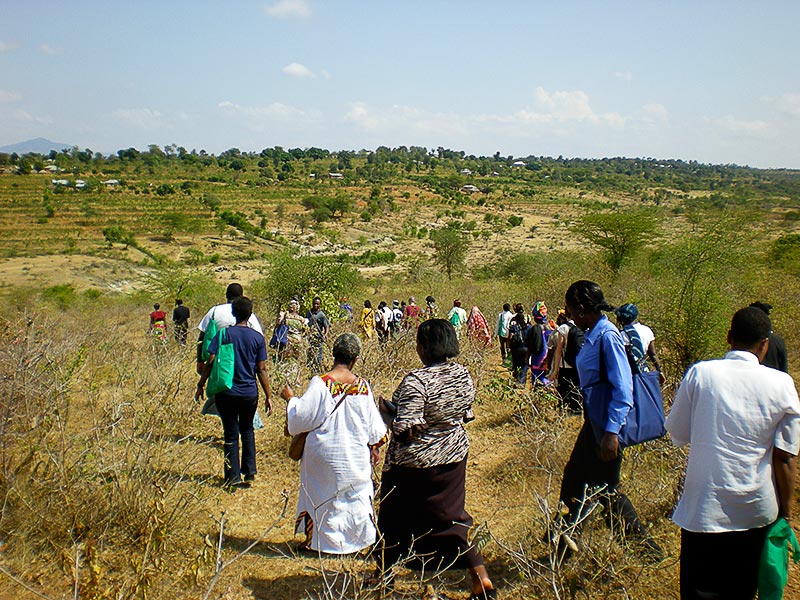
The Training convened women leaders from eight African nations who learned low-cost, sustainable water technologies, developed business plans, and received Seed Grants to launch their own clean water microenterprises.
The 30 women participants are remarkable leaders. They speak between 4-8 languages; have 2-20 children and grandchildren; range in age from 25-72; care for the sick, elderly and orphans; run church groups; coordinate grassroots women’s collectives working with 20-2000 families; run their own farms; and campaign on issues from land rights for women to HIV/AIDS prevention. Some of these women run indigenous networks, manage their own environmental organizations, fight political corruption as lawyers, and, of course, work tirelessly to find solutions to the mounting water issues in their communities.
This training focused on water was a deeply significant and long-awaited step in the leadership journeys of these women leaders.
THE CURRICULUM
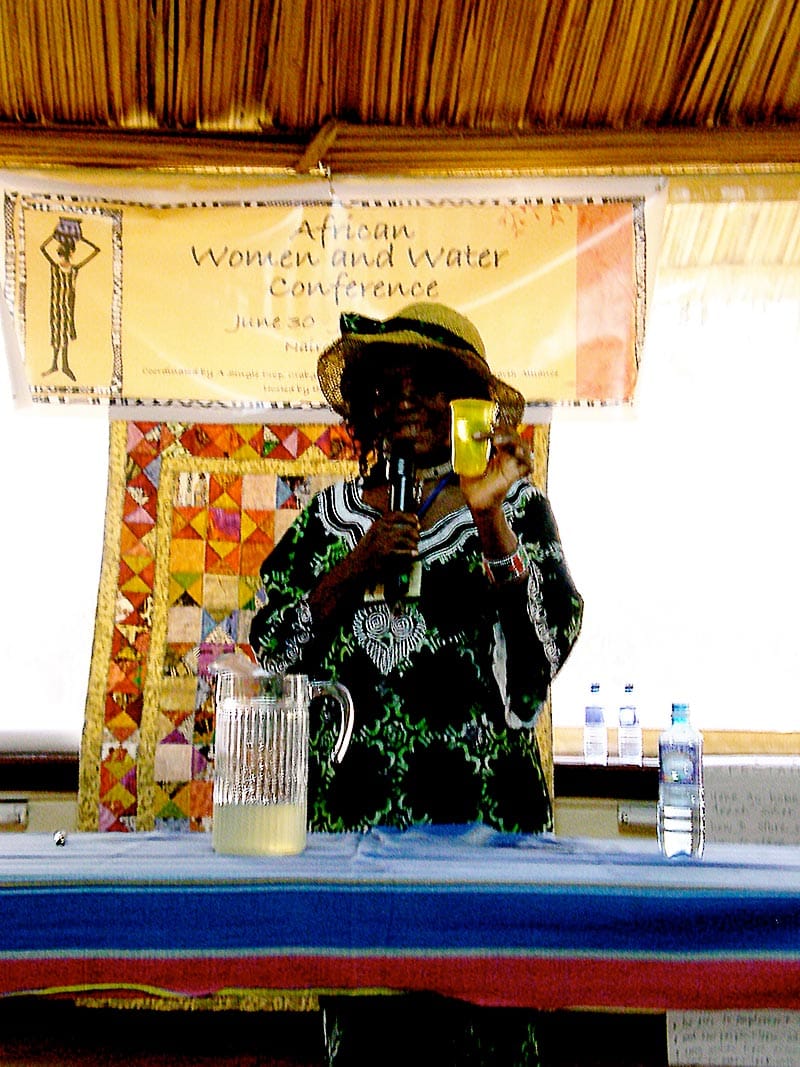
The Training began with a powerful water ceremony. Each woman told the story of the water she carried from her village and poured it into a common vessel. We learned later in the week during the water testing session that over 3/4 of these water samples were contaminated with E. coli. This vessel of water represented the extent of the challenge ahead, but it also symbolized the connectedness and shared purpose of this group.
Our team carefully designed the curriculum by selecting water technologies and session topics based on the specific water challenges in the communities of the participants.
Over the course of the week, each two-person team learned skills in:
- Business planning and project development
- Proposal Writing
- Water Testing with Portable Microbiology Lab
- Solar Cooking and Pasteurization
- Integrated Water Sanitation Hygiene (WASH Strategies)
- Water Harvesting
Each of the women also completed the following trainings:
- CooKit Solar Oven Training
- BioSand Water Filter Implementer Training
- Rainwater Roof Catchment Implementer Training
- Ferro Cement Implementer Training
In addition to the practical, hands-on components of the Training, the participants also discussed Water Policy, Global Climate Change, the Millennium Development Goals and other crucial issues impacting the lives of the program participants. These enlightening conversations provided context for the technology trainings that took place.
The Way Forward
Following the Training, each team used their Seed Grant money to launch the water projects they designed during the Training. Women participants returned to their communities invigorated — teams implemented their water project; they built solar cookers, erected water storage tanks, constructed water filters, and trained others to do the same.
WATER IS LIFE
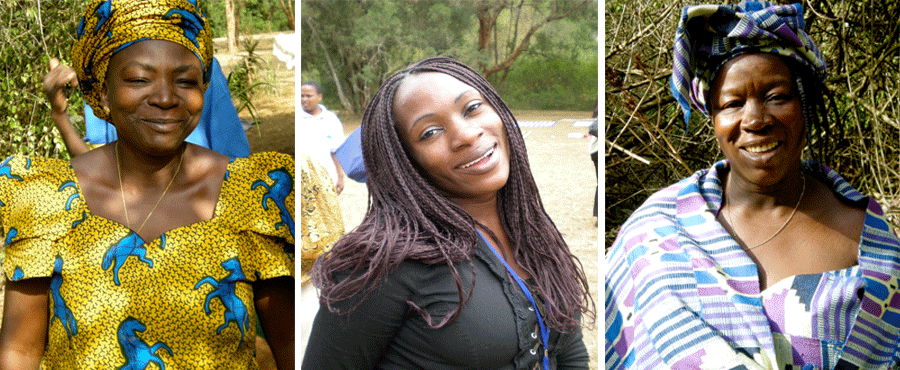

“Women are the keepers of water. It is on our shoulders.”
— OLANIKE OLUGBOJI

Truly, the call for this work is as simple as the three words spoken most often by the women at the Conference: Water is Life. We answered the call to bring simple solutions to problems that are causing deep suffering in Africa and worldwide. As a result of the partnership between WEA, A Single Drop, Crabgrass, and GROOTS Kenya, and the unceasing work of our African sisters — there is now safer water, economic opportunity, enhanced health, global solidarity, and hope in new places.


